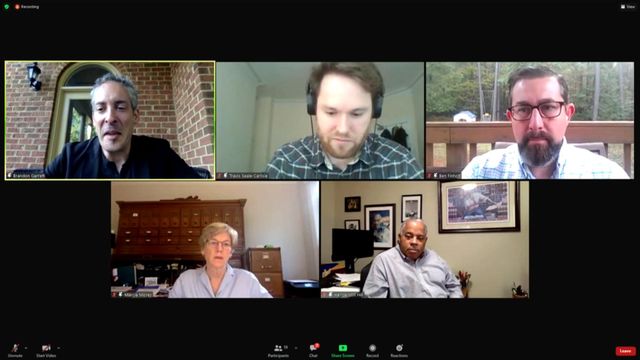Duke study shows racial bias in sentences of life without parole in NC
A new Duke University study reveals racial disparities in how sentences of life without parole are handed out - but it's the race of the victim, not the defendant, that often is the key factor.
Posted — UpdatedResearchers from the Wilson Center for Science and Justice at Duke's School of Law studied more than 1,627 instances of life without parole sentences between 1995 and 2017, looking at patterns in crime and race by county.
They found that lives of white victims were valued more highly, with defendants in those cases, getting harsher sentences than those accused of crimes against Black people.
"Although most murders are within race, the murders with white victims may attract more attention from prosecutors [and] from the jurors who are seated in these trials," said Brandon Garrett, a Duke law professor.
Garrett said life without parole is being given more often across the state, despite murder rates and death penalty sentences going down.
The research shows that the race of the defendant is an important factor in sentencing as well. Sixty-two percent of people sentenced to life without parole in North Carolina are Black, more than double the 30 percent who are white.
"How do we get a much more fair and just justice system?" asked state Rep. Marcia Morey, D-Durham, a former judge.
Morey, who now sits on a state task force on racial equity and criminal justice, said the issue of racial bias in life without parole sentencing is one issue the panel is examining.
"Life without parole is one of the most egregious forms of racial discrimination and inequity in our criminal justice system," she said.
"I think there are many people who are serving this incredibly draconian sentence for acts they did not commit, and we need to take a hard look at how we’re imposing this on children, how we’re imposing this on people of color," said Ben Finholt, director of the Just Sentencing Project for North Carolina Prisoner Legal Services.
Wake and Cumberland counties have some of the highest rates of life without parole sentences. Researchers said such sentences are handed down in those counties "as a matter of muscle memory over time."
"Sentencing a person to spend the rest of his natural life in prison is extremely serious," Durham County District Attorney Satana Deberry said. “This thought-provoking research illustrates the need for prosecutors to consider not only the strength of the evidence and the severity of the facts in deciding whether to impose this most severe of sentences, but also bias, fairness and equity.”
"We hope that this is the beginning of a serious look at how the most serious sentences are imposed in North Carolina," Garrett said.
Related Topics
• Credits
Copyright 2024 by Capitol Broadcasting Company. All rights reserved. This material may not be published, broadcast, rewritten or redistributed.






